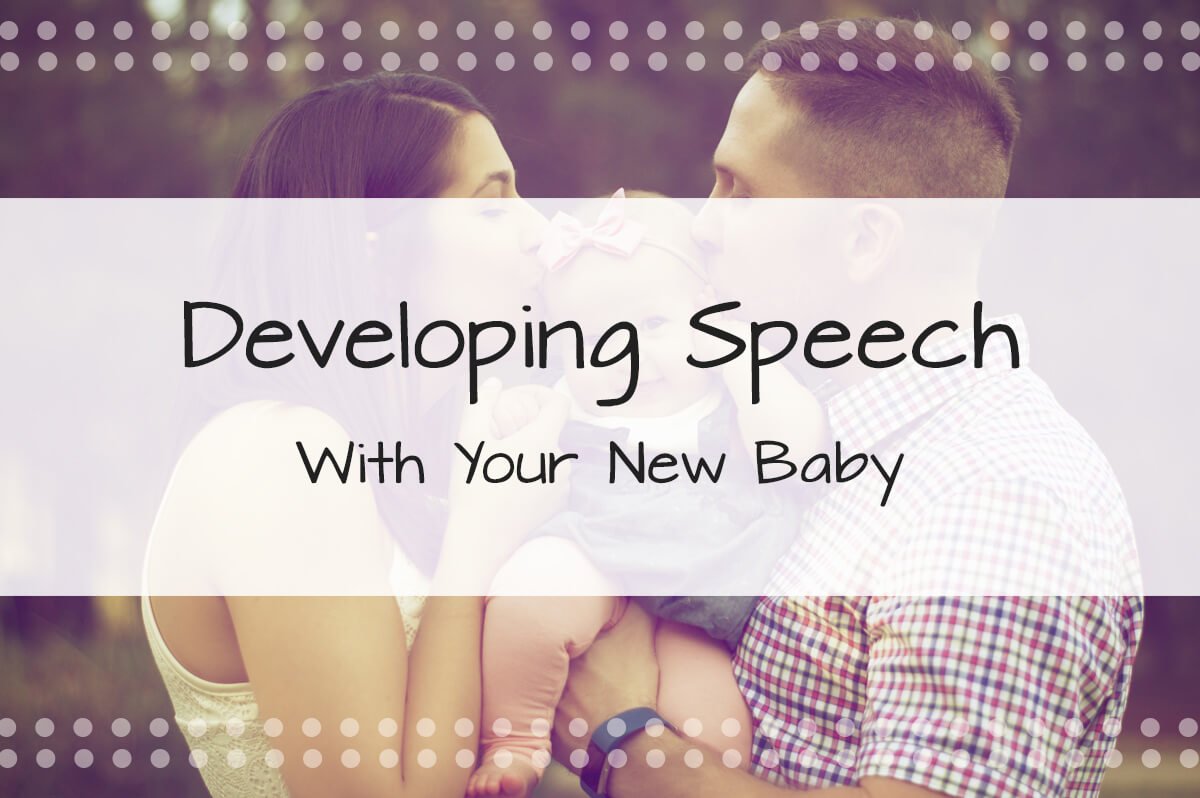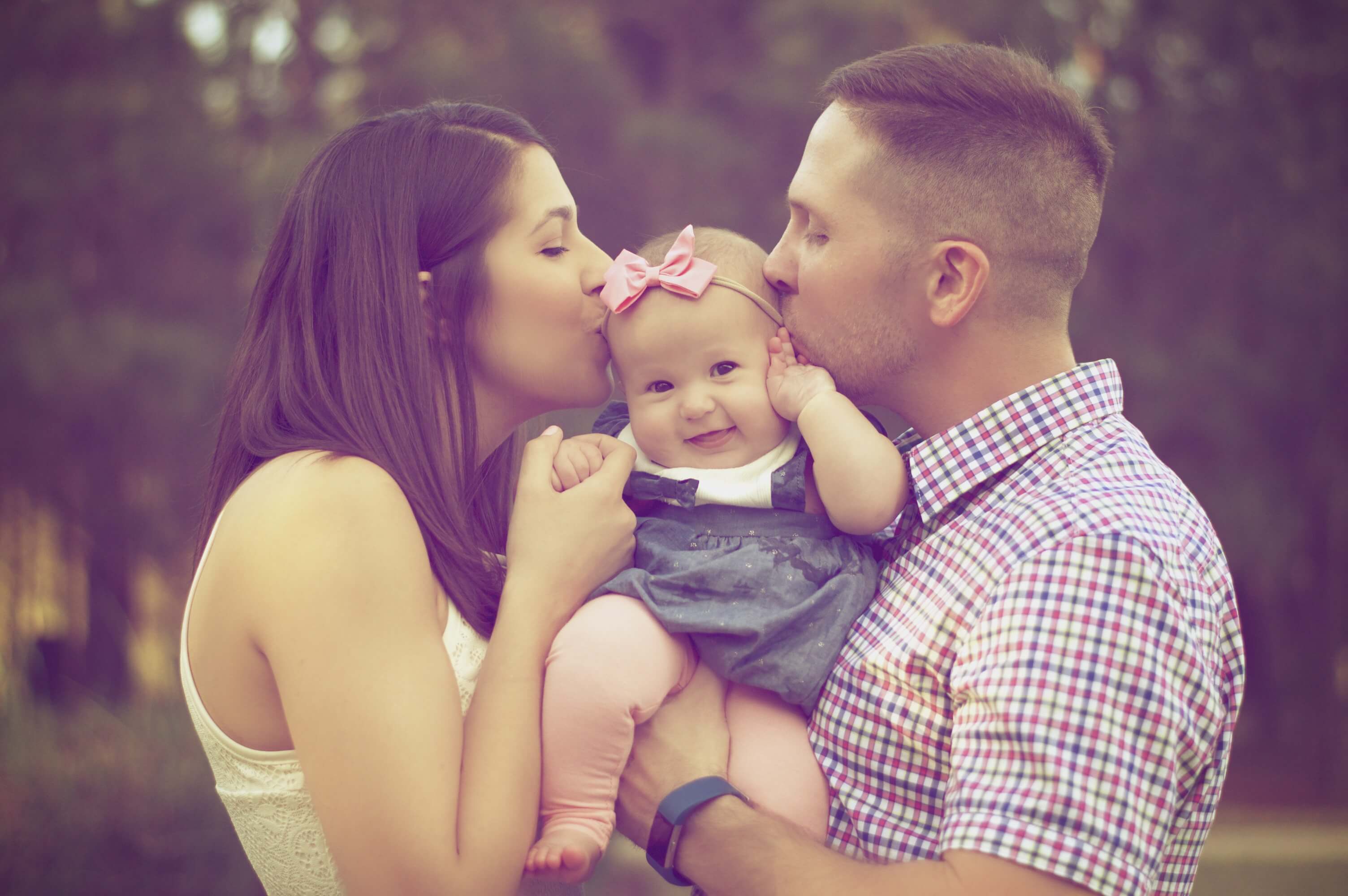
Developing Speech With Your Baby: Tips For Intended Parents To Language Development & Ways To Boost Your Surrogate Baby’s Speech Skills
Parents who have struggled with infertility sometimes decide to find a surrogate who can carry their child for them.
It is not surprising then that many intended parents are often motivated to learn everything there is to know about parenting.
A common desire for new parents is to encourage their child in developing speech early on. Many baby specialists recommend that parents begin actively talking to their baby even while still inside the womb. There certainly are some highly encouraging studies that appear to show that babies do recognize and react to the sounds that they heard even before they were born.
Play Soothing Melodies and Instrumental Music or Read to Your Baby
It is common for parents-to-be to play music in hopes that their unborn child might develop an interest in music at an early age. Other parents swear by reading right from the start. Many expectant parents read their growing little one stories every night.
Some language experts also encourage expectant parents to expose their unborn child to classical music, poetry and various stories especially in the later months of pregnancy.
The jury is still undecided on the merits of these strategies to increase a baby’s creativity, language skills and musical ability. However, there are indicators that at the very least, music, familiar voices and soothing tones heard in the womb can help comfort and relax a newborn infant later as they appear to recognize these sounds.
Scientists studying the impact of these measures have noticed that babies do seem to bond better with their parents when the relationship started before birth.
Does a Surrogate Baby Have More Difficulty with Language Development?
Many intended parents worry that their surrogate baby will not have these chances for faster and better language development skills as the baby, of course, is being carried by their surrogate mother.
As surrogacy is becoming much more prevalent and accepted, more intended parents and their chosen surrogate mothers are utilizing technology to give their unborn baby the same chances of developing speech while still inside the womb.
There are more intended parents who create tape recordings for their unborn and much-anticipated baby to hear. The surrogate mother simply turns on the recording so the baby will get used to his/her intended parents’ voices before birth.
How Soon Before a Baby Begins to Talk?
In general, most child experts say to expect a baby to say his or her first words at around 1 year of age.
However, parents can initiate better language skills from before birth and throughout that first year of life. Parents should take note of the normal guidelines for the development of speech and other developmental skills.
This is typically addressed at baby pediatrician appointments to ensure that everything is going as expected.
Language Skills Begin at Birth & Perhaps Before
Intended parents can encourage their newborns to develop language skills, increase their vocabulary and improve their socialization skills all at the same time.
This doesn’t have to be some big production. As it turns out, your baby really just wants to hang with his parents and have fun.
Make eye contact with your baby to begin this ongoing language building process. Take note of what your baby is interested in, and use words, sounds, and gestures to “explain” what the baby is looking at. Little ones will begin to recognize what you are saying to them and the objects they point that have words attached.
Learn to Pause When Communicating with Baby, & Note When He/She Does the Same
Communication is a two-way effort.
When talking to your infant, remember to pause naturally where another person would typically respond to your comments. This doesn’t take much effort. Simply gaze adoringly into your infants’ eyes. Say “You’re So Beautiful Baby” then pause.
Before long, your infant will start to kick or move arms excitedly and begin to coo or gurgle back. And so, begins the fine art of human communication.
Activities to Encourage Speech and Language Skills
There are a lot of fun and easy activities that parents can do and encourage to boost language, vocabulary and speech skills from birth to 2 years of age. Begin with eye contact and make faces.
When your baby makes a face, try to respond and do the same only with some simple noise. Babies eventually will begin to say ma, dada and other simple sounds.
Build on what your baby has previously learned. After the first words at approximately 1 year, babies of 18 months or so begin simple sentences like “me drink” or something of that nature.
Some other terrific language building activities suited for birth to 2 years include:
- Play peek-a-boo & other games with gestures that are imitated
- Put words to music
- Talk all day explaining what you and baby are doing
- Have fun & encourage cuddle times
- Teach shapes, colors, numbers, etc.
- Babies love gestures & repetition
- Connect short phrases with additional descriptive words
- Read, read and read some more – use bright picture books
Boost Baby’s Speech, Language & Communication Skills Even More
Child development and language specialists agree that there is much parents can do to boost their baby’s fledgling speech, language and communication with socialization skills even more with some simple suggestions.
Here is what they recommend:
- Watch your baby’s gestures – they often point and use gestures to help them communicate
- Encourage interactive play and conversation
- Set up play dates so your little one can practice communicating with someone her size and age
- Baby talk is alright sometimes, just be sure to include the real word for vocabulary development
- Interact all day in short increments
- Do voices when reading – babies like to change pitch
- React to your baby – this is how he knows he’s got your attention
- Keep it fun – short dialogues repeated mixed with interactive play, music and interesting pictures keeps baby interested
There are a number of language specialists that maintain babies and young children can pick up more than one language.
In other cultures, it is often common for the family to speak more than one dialect or language depending on where the family is located.
Should I Allow My Baby to Watch Television Shows for Kids?
Some parents erroneously believe that they can leave their babies in front of the television all day watching programs for kids.
What babies truly need at this age is the interaction between the parents and the infant or toddler. Small children that have little true interactions with other humans, one-on-one, typically have lower communication and language skills.
Where to Find More Information on Surrogacy

If you have questions about infertility or desire to find a surrogate, all of the staff at Made In the USA Surrogacy are here to help.
Whether you would like to become a surrogate or would like assistance on how to find a surrogate, feel free to browse our informative website, and click here to find a surrogate.
